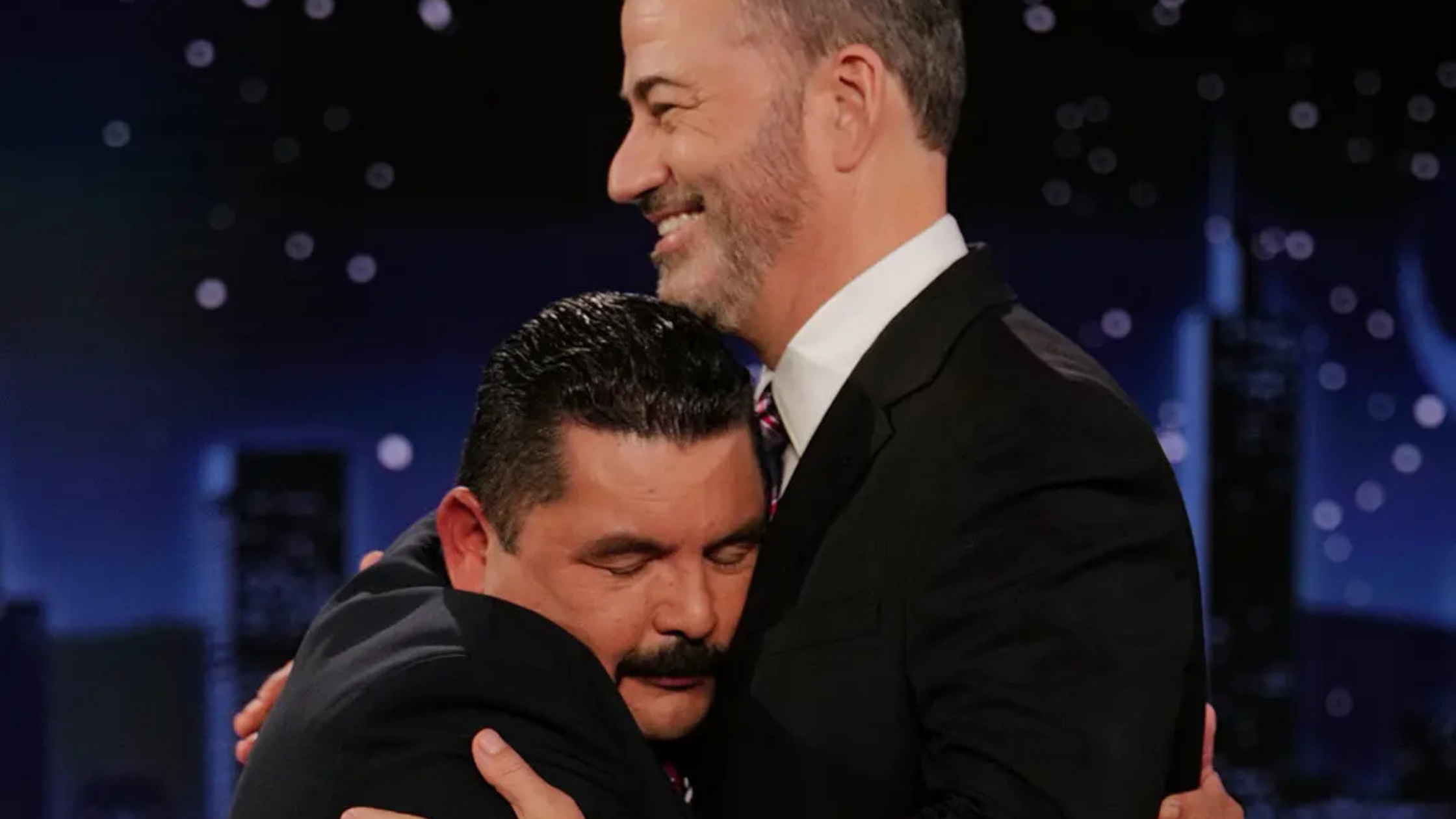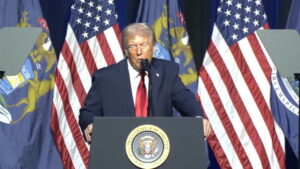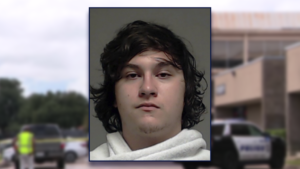Jimmy Kimmel returns monologue to a nation polarized — the late-night host made a stirring comeback following a media firestorm, reclaiming his platform with a clarion call for free speech, accountability, and compassion. His return marks a turning point in one of the most contentious debates in recent memory: can satire survive political pressure, and who gets to decide where the boundaries lie?
The Comeback: A Monologue That Broke the Silence
Jimmy Kimmel’s re-entry into the late-night arena was much more than another typical opening bit — it was a carefully crafted statement about power, conscience, and media. After being suspended by ABC (owned by Disney) for nearly a week, Kimmel took the stage again on September 23, delivering a monologue charged with emotion, resolve, and nuance.

He began by acknowledging how his earlier remarks—on the politically sensitive killing of conservative activist Charlie Kirk—had been received. Kimmel insisted he never meant to make light of the tragedy or to cast blame on any particular group. Instead, he described those lines as “ill-timed or unclear,” while emphasizing that his broader concerns stemmed from how such events are politicized.
This return also featured pointed criticism of media gatekeepers and regulatory threats. Kimmel directly challenged FCC Chair Brendan Carr, who had appeared to suggest possible consequences for networks that continue to air his show. Kimmel framed such pressure as antithetical to American values, comparing it to censorship in authoritarian regimes.

By blending vulnerability — even near-tears — with defiance, Kimmel ensured the moment would resonate. He expressed gratitude to unexpected voices of support, including political figures across the spectrum, and lauded Erika Kirk (Charlie Kirk’s widow) for publicly forgiving her husband’s accused killer. “That example of grace matters,” he said.
Why He Was Pulled — and Why He Came Back
The genesis of the suspension was Kimmel’s on-air commentary about how partisan elements were interpreting Charlie Kirk’s murder. In a controversial monologue, he suggested that some within the MAGA sphere were “trying to score political points” from the killing, even before attribution of motive or affiliations was known. Critics said his wording crossed the line into defamation or hate.
In response, Disney suspended Jimmy Kimmel Live! on September 17. ABC characterized his remarks as “ill-timed and insensitive,” and said the suspension was a protective step to prevent further escalation in a tense national moment.
That move sparked backlash across entertainment, journalism, and civic circles. More than 400 notable Hollywood figures signed a letter, issued via the ACLU, warning that the step set a dangerous precedent for creative and political expression.
Under pressure, Disney reversed course and reinstated Kimmel on September 22, announcing that Jimmy Kimmel Live! would resume airing the next day. Disney and ABC described the decision as the result of “thoughtful conversations” with Kimmel.
However, the reinstatement wasn’t unqualified: affiliate groups Sinclair and Nexstar, which operate a large portion of ABC’s local stations, announced they would continue to preempt the show in many markets — effectively blocking Kimmel’s return from reaching up to a quarter of the network’s viewers.
Kimmel’s return was thus a triumph with constraints: he was back, but not universally, and the battle lines over free speech and media power were clearer than ever.
Pressure Points: FCC, Affiliates, and Political Firestorms
A significant dimension of this controversy lies in the role of the Federal Communications Commission — and how authority, regulation, and political influence intersect with broadcast content. FCC Chair Brendan Carr was vocal throughout, publicly criticizing Kimmel’s remarks and hinting at possible consequences for networks that tolerated “news distortion.” Many saw it as an implicit threat to ABC’s license.
Kimmel responded defiantly, calling such pressure “un-American” and warning that regulatory overreach poses a risk not just to comedy but to journalism, arts, and cultural voices. He used satire and metaphor to mock Carr’s posture, casting him as an overzealous censor in a Robert De Niro–style sketch.
Simultaneously, Sinclair and Nexstar, two of the most powerful broadcast affiliation groups in the country, refused to air Kimmel’s revival. Sinclair even demanded a personal apology from Kimmel and a donation to Charlie Kirk’s family and Turning Point USA, before reconsidering their stance.
Political dynamics poured gasoline on the fire. Donald Trump celebrated Kimmel’s suspension, attacked ABC’s decision to reinstate him, and accused Kimmel of biased, anti-Republican programming. Kimmel’s rebuttal was sharp: he framed Trump’s attempt to cancel dissent as a betrayal of democratic norms.
The cancellation of The Late Show with Stephen Colbert earlier in 2025 — a decision widely seen as part of broader shifts in late-night economics and network priorities — added weight to fears about how political, financial, and ideological forces shape media.
The result: a high-stakes cultural showdown with implications far beyond one comedic host’s fate.
Highlights of the Monologue: Moments That Made Waves
Kimmel didn’t shy from emotional moments. At times, he choked up while speaking about grief, forgiveness, and the fragility of national discourse. He emphasized he was not there to absolve himself, but to clarify his intent and defend the space for comedic speech.
He opened the episode with a montage of media coverage about the controversy, both criticism and support. That framing set the tone: this was not just a show return, but a continuance of a broader conversation.
Kimmel acknowledged those who’d spoken up in his defense — even those who otherwise disagree with him. He singled out Senator Ted Cruz and conservative commentator Ben Shapiro as examples of unlikely but meaningful support.
Perhaps most poignant was his tribute to Erika Kirk. He spoke of her public forgiveness as an act of humility and human grace that transcended politics — “an example we should follow.”
And then, he turned to satire again — mocking Trump’s ratings criticisms and suggesting that his suspension only drove viewership higher. He quipped that the only condition of his return was asking viewers to renew their Disney+ and Hulu subscriptions — a dig at the business side of media.
In total, the monologue threaded seriousness and levity, anger and empathy — signaling that Kimmel intended to continue pushing boundaries on his terms.
The Stakes: Free Speech, Media Independence, and the Future of Comedy
This episode isn’t just about one host or one network. It touches the fault lines of how power, politics, and media collide.
First, there is the question of regulatory coercion. If government officials can effectively pressure broadcasters to silence critics under threat of license review, it unsettles foundational First Amendment norms. Kimmel frames himself as a test case, arguing that humor and satire must remain shielded from political retaliation.
Second, affiliate influence matters. Corporate gatekeepers like Sinclair and Nexstar can effectively veto what millions see in local markets. Their refusal to air Kimmel’s return demonstrates how media consolidation intersects with ideological control.
Third, public pressure and backlash dynamics are reshaping how networks respond. Disney reversed its suspension amid visible protests, star outcry, and subscriber cancellations. In this era of instant feedback and social media amplification, corporate decisions are more vulnerable to reputational risk than ever. Financial Times
Finally, the controversy spotlights the evolving economics of late-night. Declining traditional viewership, rising streaming competition, and shifting advertiser models already place pressure on “legacy” talk shows. Kimmel’s ordeal underscores that those already on shaky ground are more vulnerable to censorship or political entanglement.
So while Kimmel is back, the broader fight remains ongoing — over who sets the rules, how media responds to political pressure, and whether comedians, commentators, and dissenters can still operate without reprisal.
Conclusion
Jimmy Kimmel’s return monologue represents more than just a host resuming his nightly gig — it is a microcosm of the struggles at the intersection of comedy, politics, and media power. Through moments of emotional candor, pointed critique, and narrative framing, Kimmel reasserted both his voice and his mission.
This episode will echo far beyond late-night TV. It raises urgent questions about who gets to speak, who frames stories, and how pressure from above shapes what we see and hear. In an era of polarization, this will likely be a defining moment — not just in Kimmel’s career, but in the ongoing debate about speech, satire, and sovereignty over narrative.
Subscribe to trusted news sites like USnewsSphere.com for continuous updates.





